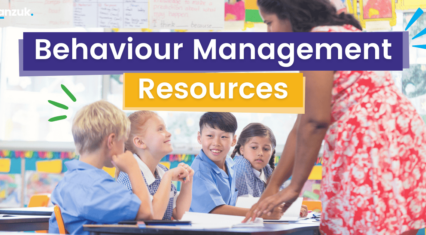Search
Get Started
Casual Opportunities: Register here
Teaching casually gives you the flexibility to choose when you work
Permanent / Contract Opportunities : Apply here
View our job board for teaching or leadership role at our partner schools
“It doesn’t matter whether you’ve been in the classroom for years or are new to the profession, the new school year brings a mix of emotions for any teacher.”
This article shared by @Victoria Hewitt, a teacher and education blogger, highlights important tips to help maintain your wellbeing in the new school year.
1 – Pace Yourself
The school year is like a marathon rather than a sprint, with a few hurdles thrown in.
There can be the temptation to try and get everything done as quickly as possible; you may have a new planner to organise, new lessons to plan, seating plans to create, displays to prepare as well as getting to know the students in your care and to teach those all-important lessons along with the resulting work to mark and assess.
It may seem tempting to stay up late or to stay a few extra hours to get it done, but you need pace yourself from the start of the year.
Avoid throwing all your energy into the first few weeks, leaving you longing for the half term by week three.
2 – Plan and Prioritise
To help pace yourself in the first few weeks, plan what you need to do along with what you want to do.
It can be useful to divide your time into period of fixed (you have little to no control over what you do in this time) and flexible (your time is yours to spend how you wish) time and then prioritise tasks accordingly.
The Eisenhower Matrix is a useful tool for evaluating the importance and urgency of tasks, helping to prioritise those tasks that must be done, that can be scheduled for a later date, that can be delegated or simply deleted from the to-do list.
You simply can’t do everything that is expected of you or that you want to do work wise without it having an impact on your time somewhere else, plan the time you will spend working and prioritise what you will do in it.
3 – Personal time
When you’ve had several weeks off from school, you’ve rested, relaxed and are now feeling ready for the year ahead, it can be tempting to focus on work for the weeks that follow.
Remember to create plans for yourself; whether it’s time to exercise, to get pampered or to see family and friends, book it in early on so you have plenty of personal plans for the term ahead.
Once you’ve got your plans organised, ensure you stick to them too and protect the ‘you’ time you’ve set aside. Perhaps get family and friends on board to hold you to account so you’re not tempted to cancel and continue working.
4 – Pick out the positives
As the days draw in, the weather turns a little chillier and you’ve had a lesson that didn’t quite go to plan it can be easy to dwell on things, particularly the negatives.
Take some time at the end of each day or week to reflect on the positives that have occurred.
You may wish to write them down for future reference, discuss them with colleagues or just think about them in a space of reflection, whichever approach, take a few minutes to consider the successes and positives of your time in work to keep you motivated as winter creeps in.
Whilst you’re thinking positively, consider how you can also take positive actions to manage and reduce your own workload.
Be proactive in seeking out and trying work-load reducing strategies, take time in the first few weeks to trial, evaluate and adapt strategies until you find what works well for you and your students. Then share those positive experiences with colleagues, it might just help them too.
5 – Peer assessment
Whilst on the topic of taking pro-active measures, consider embedding peer assessment into your classroom routines; it supports effective learning and workload reduction.
In the first few weeks of the new school year, take time to teach and embed peer assessment strategies such as proofreading, marking and feedback.
Students may need modelling and scaffolding to begin with but persist with it and by Christmas most of your students will be competent at it, meaning you have a feedback friendly classroom that reduces your workload and supports student progress.
Just be consistent, determined and set high expectations with it from day one and you and your students are sure to reap the benefits later on.
To conclude, ensure you take time for yourself in the first term.
After several weeks off it can be tempting to throw yourself into your work, but to maintain a healthy work-life balance you must take time to relax and recharge throughout the entire school year.
Credit to @Victoria Hewitt for such an insightful and reassuring article!






